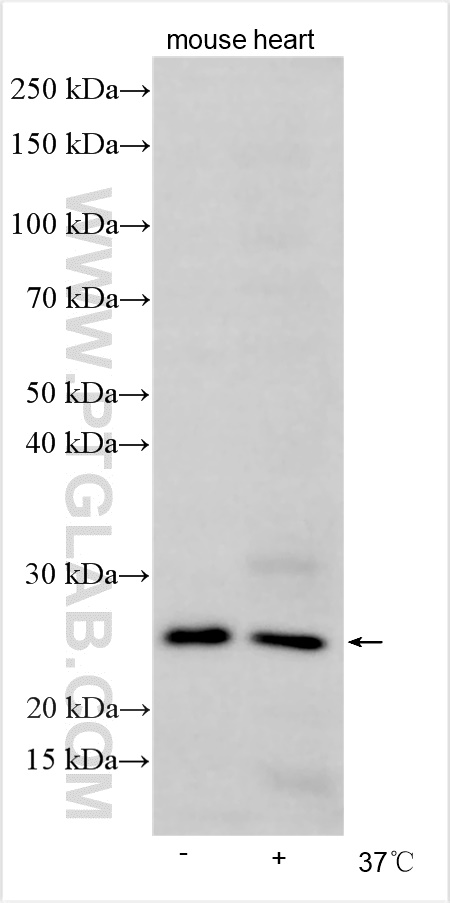LHFPL4 Polyclonal antibody
LHFPL4 Polyclonal Antibody for WB, ELISA
Host / Isotype
Rabbit / IgG
Reactivity
human, mouse
Applications
WB, ELISA
Conjugate
Unconjugated
验证数据展示
经过测试的应用
| Positive WB detected in | mouse heart tissue |
推荐稀释比
| Application | Dilution |
|---|---|
| Western Blot (WB) | WB : 1:500-1:1000 |
| It is recommended that this reagent should be titrated in each testing system to obtain optimal results. | |
| Sample-dependent, Check data in validation data gallery. | |
产品信息
21094-1-AP targets LHFPL4 in WB, ELISA applications and shows reactivity with human, mouse samples.
| Tested Applications | WB, ELISA Application Description |
| Tested Reactivity | human, mouse |
| Immunogen | LHFPL4 fusion protein Ag15349 种属同源性预测 |
| Host / Isotype | Rabbit / IgG |
| Class | Polyclonal |
| Type | Antibody |
| Full Name | lipoma HMGIC fusion partner-like 4 |
| Synonyms | Lipoma HMGIC fusion partner-like 4 protein, LHFPL tetraspan subfamily member 4 protein, GARLH4, GABAA receptor regulatory Lhfpl4 |
| Calculated Molecular Weight | 247 aa, 27 kDa |
| Observed Molecular Weight | 27 kDa |
| GenBank Accession Number | BC113964 |
| Gene Symbol | LHFPL4 |
| Gene ID (NCBI) | 375323 |
| RRID | AB_3669357 |
| Conjugate | Unconjugated |
| Form | Liquid |
| Purification Method | Antigen Affinity purified |
| UNIPROT ID | Q7Z7J7 |
| Storage Buffer | PBS with 0.02% sodium azide and 50% glycerol pH 7.3. |
| Storage Conditions | Store at -20°C. Stable for one year after shipment. Aliquoting is unnecessary for -20oC storage. |
背景介绍
LHFPL4, or Lipoma HMGIC Fusion Partner-Like 4, is a member of the tetraspanin superfamily of transmembrane proteins. LHFPL4 interacts tightly with GABAAR subunits and is selectively enriched at inhibitory synapses. It is important for GABAAR clustering both in vitro and in vivo, and it is required for surface clustering but not the trafficking of GABAARs (PMID: 28978485).
实验方案
| Product Specific Protocols | |
|---|---|
| WB protocol for LHFPL4 antibody 21094-1-AP | Download protocol |
| Standard Protocols | |
|---|---|
| Click here to view our Standard Protocols |
